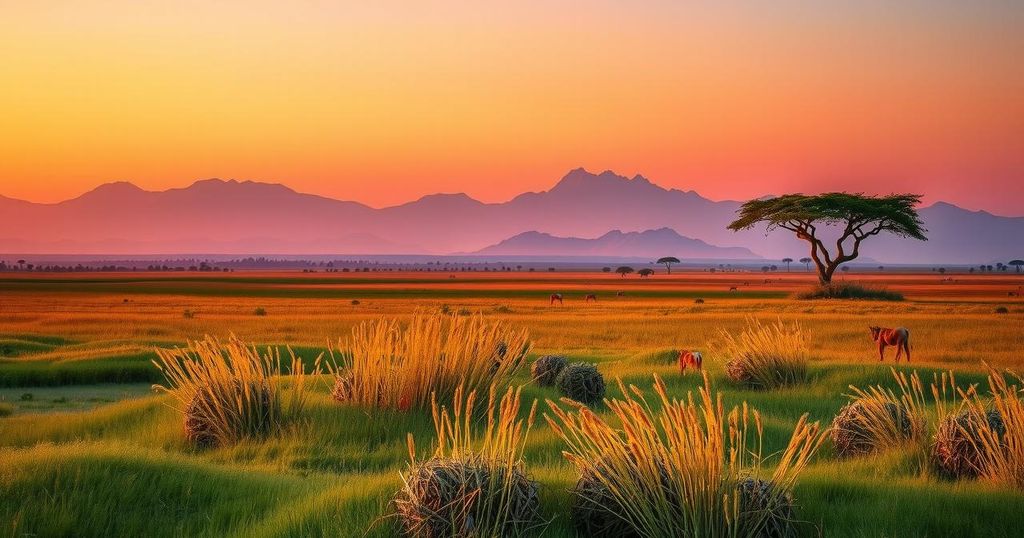South Sudan Faces Renewed Conflict Amid Rising Tensions and Political Strife

South Sudan is at risk of falling back into civil war after the arrest of Riek Machar, pivotal in its fragile peace agreement. Tensions arise from ethnic divisions and military interventions, with international bodies warning of escalating violence. The humanitarian crisis is severe, with significant poverty levels and increasing refugee pressures compounding the nation’s turmoil.
South Sudan, the youngest nation globally, is on the brink of renewed conflict as its peace deal faces collapse. This follows a prolonged struggle for self-governance post-secession from Sudan in 2011, characterized by an ethnic divide leading to civil wars in 2013 and again in 2016, eventually halted by a tenuous ceasefire in 2018.
The current crisis stems from a coalition government led by President Salva Kiir, who has arrested Riek Machar, his political rival and leader of the SPLM/A-IO party. The SPLM/A-IO responded negatively, stating that Machar’s detention jeopardizes the peace agreement with Kiir, thus prompting fears of escalating tensions.
Machar’s arrest also coincided with the capture of other SPLM/A-IO officials and the arrival of Ugandan troops to support the South Sudanese military, which has been condemned by the SPLM/A-IO as unlawful. Machar directly criticized this intervention in a letter to the UN, stressing a violation of the peace terms.
Historically, South Sudan has not conducted national elections; its government formation was rooted in a 2018 power-sharing agreement after a conflict claiming about 400,000 lives. The internal strife reflects deep ethnic divides between Kiir’s Dinka tribe and Machar’s Nuer group, fostering ongoing tensions.
Recent violent clashes in Nasir between government forces and the Nuer militia, known as the White Army, have further destabilized the region, resulting in numerous casualties. Government officials claim Machar is inciting rebellion, while the SPLM/A-IO contests these accusations.
Internationally, the unfolding situation has drawn serious concerns. UN officials warn of imminent civil war and the deterioration of the peace agreement. Joint appeals from Western nations urge Kiir to reverse Machar’s arrest and advocate for an immediate ceasefire.
The ongoing crisis also highlights dire humanitarian conditions within South Sudan, with a majority of the population living on under $2.15 daily. As the humanitarian situation worsens, over half a million refugees from neighboring war-torn regions have sought asylum in South Sudan, intensifying the complexity of the crisis.
As per recent evaluations, the World Bank indicates that issues such as violence and political strife exacerbate humanitarian needs in South Sudan, suggesting widespread poverty and urgent assistance requirements. UN Secretary-General Antonio Guterres emphasized the critical nature of the situation, stating that South Sudan is “a country on the edge.”
The precarious situation in South Sudan underscores the fragility of peace achieved post-civil war and highlights ongoing ethnic tensions. With potential resurgence in violence following Machar’s arrest and external military involvement, the country teeters on the brink of collapse. The international community’s call for de-escalation and humanitarian assistance is critical as South Sudan confronts dire socio-economic challenges and internal conflict.
Original Source: www.wral.com







